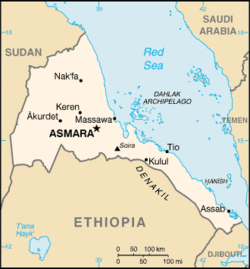Acts
The resolution extended UNMEE's mandate at the prevailing troop level of 4,200 in accordance with Resolution 1320 (2000). Both parties were urged to fulfil their commitments under the Algiers Agreement and fully implement Boundary Commission decisions, as concern was expressed at incursions into the southern boundary of the Temporary Security Zone. The parties were further called upon to co-operate with UNMEE, protect United Nations personnel and their freedom of movement, and establish an air corridor between the capitals of Addis Ababa and Asmara to reduce the costs of the mission.
The Council affirmed the capability of UNMEE to monitor compliance by Ethiopia and Eritrea with their responsibilities, and noted its education and demining efforts. The two parties were urged to continue discussions on territorial transfers, inform their populations about the demarcation process and its consequences, and refrain from unilateral troop and population movements or establishment of settlements near the Ethiopia-Eritrea border. [4] The council would review progress in the implementation of the aforementioned commitments and responsibilities and determine any implications for UNMEE.
The resolution expressed concern at the continuing drought and humanitarian situation in both countries and called upon both countries to adopt confidence-building measures and measures to normalise their diplomatic relations.
